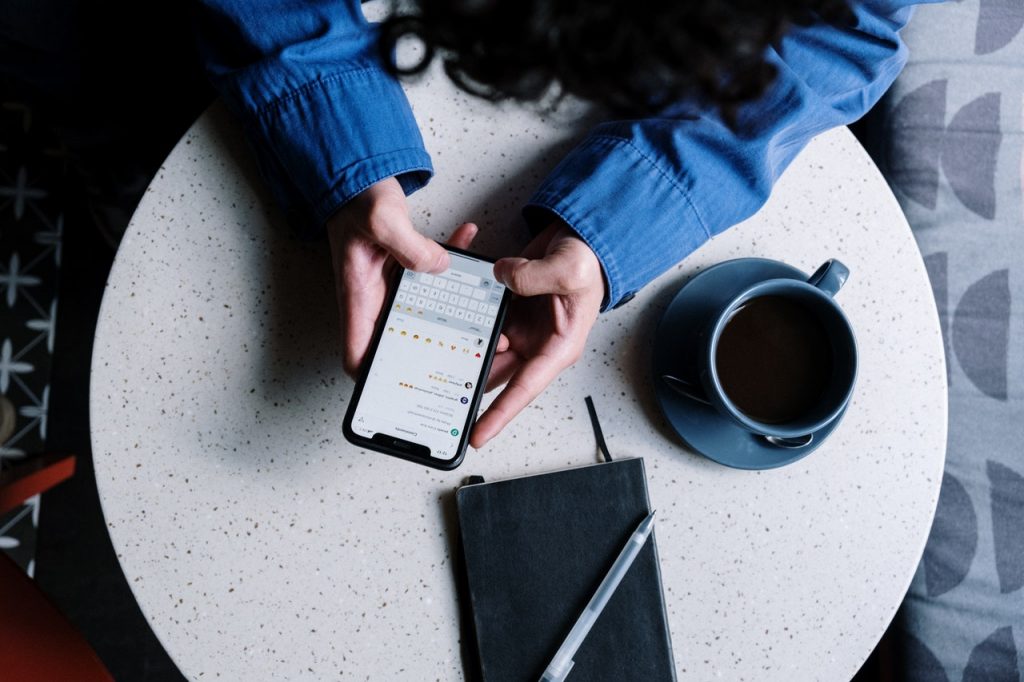Has your smartphone started to play too big a role in your life? It’s high time to deal with the destructive habit of the 21st century, which manifests itself by constantly checking your phone, and start living in the real world.
Cell phones in our country became popular about 15 years ago. It was then that the sale of electronic gadgets became widespread among the population. Practically everyone got access to a brand new phone. As cell phones became more popular, so did the popularity of landline phones, which were eventually replaced by smartphones.
Unlike traditional cell phones, smartphones are not only a means of communication, but also a multimedia entertainment center that allows you to lead a kind of social life. Social networks such as Instagram and Facebook have opened up new possibilities for their users. Nowadays, we learn about many events not through direct contact with people, but through social networks. Thus, cell phones have, in a way, taken over the lives of all users. And that is why the phenomenon of phonoholism has gained such momentum.
It is worth noting that this is not an imaginary problem, but a fully documented condition, no less serious than addiction to computer games or alcohol. Psychologists call phonolism a disease of the 21st century and make it a serious problem that impairs normal functioning and affects human behavior.
Phonoholism is the fear and anxiety caused by thoughts of not being able to use a smartphone for some reason. A person affected by phonoholism may fear that the phone will be stolen, have a dead battery, or run out of money in their account. Sometimes it doesn’t take much – the phone may be in the next room – for the phonoholic to start experiencing symptoms typical of this condition. These include anxiety, panic, difficulty breathing, shivering, increased sweating, rapid heartbeat, and even loss of spatial orientation.

The following are behaviors typical of a person affected by phonoholism. Consider making changes in your life if
– you are unable to part with your phone for even a moment. You try to have it in your sight all the time and feel best when it is in your pocket
– You rarely let your phone out of your hands. You spend a lot of money on buying new updates, as well as apps for making and keeping in touch
– You put your phone under your pillow or on your nightstand at bedtime
– You prefer to talk on the phone rather than face-to-face;
– You feel uncomfortable during a face-to-face conversation and have trouble choosing the right words. This does not happen to you when you talk on the phone;
– You find it much easier to talk on the phone than face-to-face, so you are constantly worried about losing your phone and checking that it is in place
– you pay a lot of attention to your selfies, which you often post on Instagram and other social media sites. You want to look your best in the pictures: in fashionable clothes and glamorous makeup, although in real life you don’t particularly care about your appearance.
All this is a sign of phonoholism, a smartphone addiction that must be dealt with. Phone abuse has a disastrous effect not only on the psyche, but also on the physical health of a person, due to the fact that it produces a certain electromagnetic field, capable of damaging brain cells. Such a turn of events may end up in the occurrence of a serious disease.
If only for this reason, try to keep your phone away from you, use it only for specific purposes. Phonophobia is quite a serious condition that can be placed on the same level as alcoholism or obesity. Just as an alcoholic or a smoker has trouble quitting, a phonaholic can hardly do without a gadget in his hand or pocket.
In order to break free from the addiction, one has to give up using a smartphone. This is not easy at first for a person suffering from phonophobia. At the initial stage, specialists advise to stop walking around the apartment with the phone.
– Put it in some hard-to-reach place, such as on a closet or in a purse shoved deep into a drawer. Use it only as a last resort.
– To get on the Internet, use only your computer. Leave your phone at home when you go out on the street, on a walk with your child or a loved one. Stay in places where you don’t have cell phone reception more often.
– On weekends or vacations, try not to use your smartphone. Turn your phone off and try to access it as little as possible. Spend less time online and only make calls when necessary.
– Keep your contact with your phone to a minimum. Never put it under your pillow or on your nightstand at night.
By following these recommendations, you will gradually limit the time you spend in the company of your gadget. With time, you will begin to see it only as a means of communication with the outside world. You will realize that life does not end with the smartphone and that you can easily do without it. This in turn will translate into your social habits, helping you open up to people in the real world.
Photo Giftpundits.com/Pexels